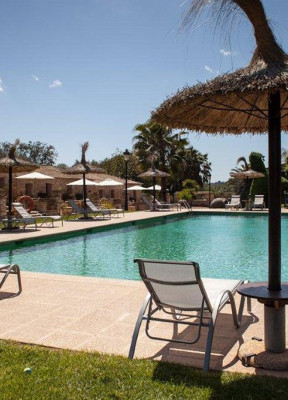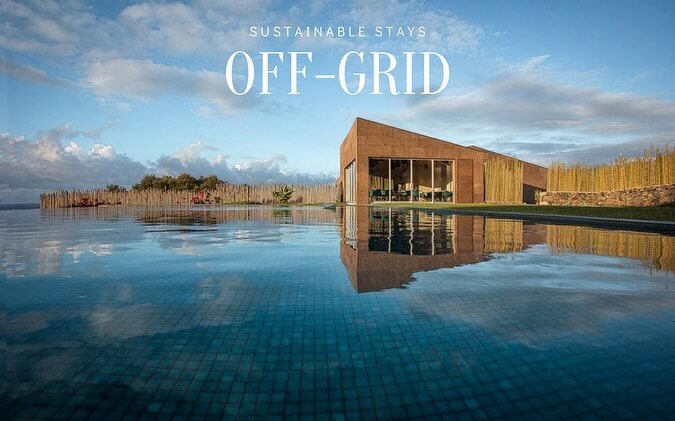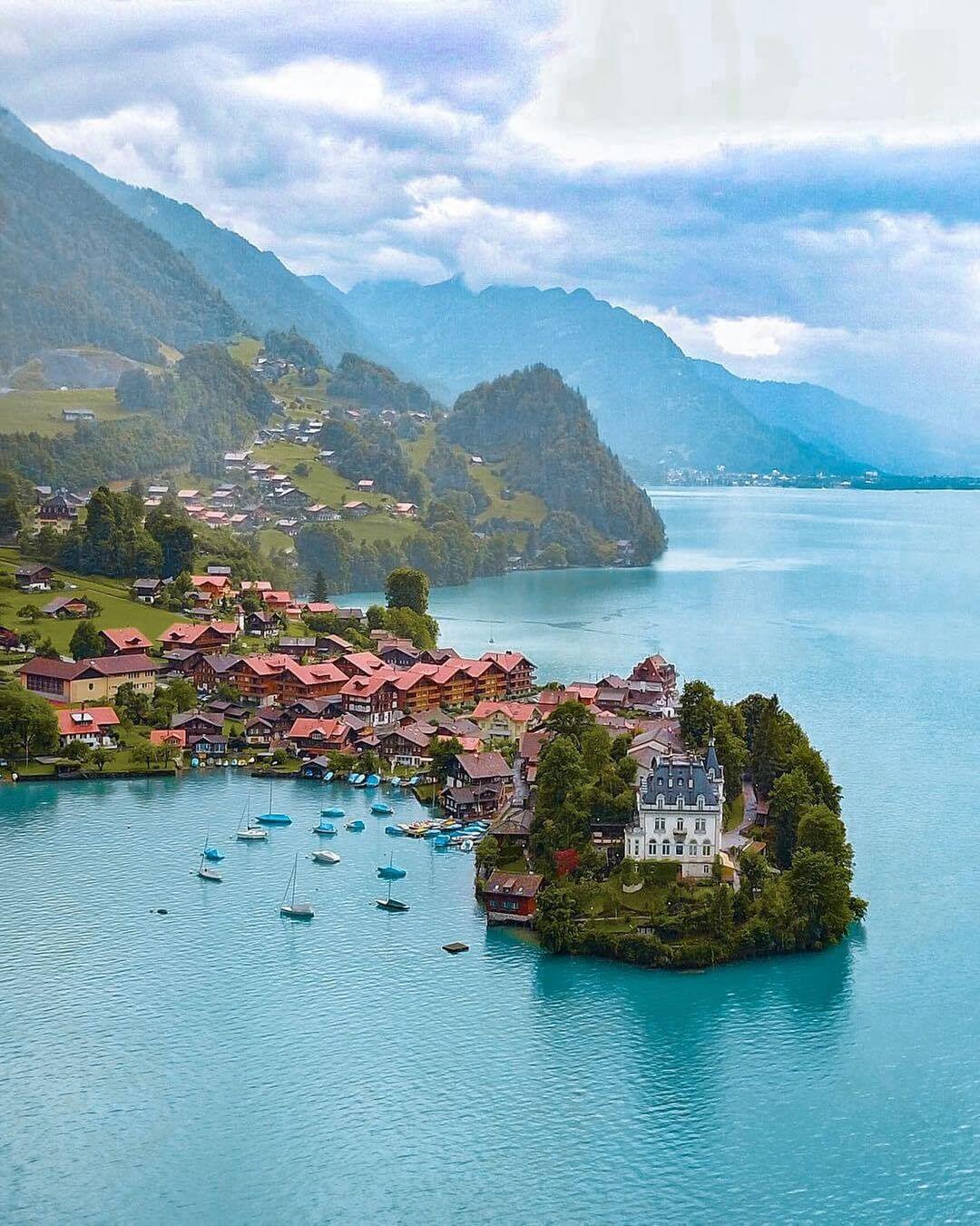In today’s blog, we delve into the fascinating world of ecotourism and explore its numerous benefits. As conscious citizens of the world, we understand the importance of improving our travel habits to promote sustainability and protect the environment. At Good.travel, we are dedicated to providing eco-conscious travelers with the tools and resources to make responsible travel choices.
Let’s explore the concept in this ecotourism blog and the advantages it offers.
What is Ecotourism?
Ecotourism is a form of sustainable travel that promotes responsible and environmentally-friendly tourism. It involves visiting natural areas while conserving the environment, improving the welfare of local communities, and creating economic opportunities for them. The objective of ecotourism is to minimize the negative impact of tourism on the environment and maximize the positive impact on local communities.
Ecotourism definition
Eco-tourism is defined as “responsible travel to natural areas that conserves the environment, sustains the well-being of the local people, and involves interpretation and education” by The International Ecotourism Society (TIES).
The meaning of ecotourism is to engage in activities that promote sustainable tourism practices, reduce negative impacts on the environment, and benefit the local communities.
Eco-Tourists: Champions of Sustainable Travel
Eco-tourists are individuals who actively seek out travel experiences that are responsible, sustainable, and environmentally conscious. They understand the importance of their impact on the environment and strive to leave a positive imprint on the places they visit.
Eco-tourists prefer destinations that promote ecotourism and adhere to sustainable tourism practices. They actively participate in activities that support environmental conservation, respect local cultures, and contribute to the well-being of local communities.
Benefits of Ecotourism
At Good.travel, we believe that ecotourism can have a transformative impact on the environment and the communities we visit. Let’s explore some of the advantages of ecotourism:
-
Environmental Conservation:
It plays a vital role in protecting natural areas and conserving biodiversity. By promoting responsible travel practices and minimizing environmental disturbance, eco-tourists contribute to the preservation of ecosystems, habitats, and endangered species.
Many ecotourism initiatives actively participate in conservation projects such as reforestation, habitat restoration, and wildlife protection, ensuring the long-term sustainability of natural resources. -
Economic Empowerment:
It creates economic opportunities for local communities, particularly in rural or underdeveloped areas. By engaging in eco-tourism activities such as guided nature tours, community-based accommodations, and local craft experiences, visitors generate income and support the livelihoods of local residents.
This economic empowerment can lead to poverty reduction, improved infrastructure, and enhanced access to education and healthcare for local communities. -
Cultural Preservation and Exchange:
It promotes cultural exchange and the preservation of cultural heritage. Visitors have the opportunity to immerse themselves in the customs, traditions, and way of life of the local communities they visit. This cultural immersion fosters mutual understanding, respect, and appreciation for diverse cultures.
Furthermore, ecotourism often supports the preservation of historical sites, traditional practices, and indigenous knowledge, ensuring the conservation of cultural heritage. -
Education and Awareness:
Ecotourism provides valuable educational experiences for both travelers and local communities. Visitors gain insights into environmental issues, conservation efforts, and sustainable practices. This knowledge inspires them to make positive changes in their own lives and become advocates for environmental conservation.
Additionally, local communities often benefit from educational programs and training opportunities related to sustainable tourism, empowering them to become active stewards of their natural and cultural resources.
Is ecotourism sustainable?
The sustainability of ecotourism lies in its ability to strike a balance between environmental conservation, socio-economic development, and cultural preservation. It requires a collaborative effort from travelers, businesses, governments, and local communities to ensure that tourism activities remain sustainable and responsible.
To achieve sustainability, it is essential to prioritize the following:
-
Environmental Responsibility:
Ecotourism should prioritize the protection of natural resources, conservation of biodiversity, and reduction of carbon emissions. Travelers should support destinations and accommodations that follow sustainable practices such as waste reduction, energy efficiency, and the use of renewable resources. -
Community Engagement:
Local communities should be actively involved in the planning, decision-making, and economic benefits of ecotourism initiatives. This involvement ensures that communities have a say in how tourism activities are conducted and that the benefits are distributed equitably. -
Education and Awareness:
Travelers should strive to educate themselves about the environmental, social, and cultural aspects of the destinations they visit. By gaining knowledge and spreading awareness, they can make informed choices and contribute positively to the sustainability of ecotourism.
Ecotourism destinations
There are numerous breathtaking destinations around the world that exemplify the principles of ecotourism.
-
Ecotourism in France:
France, known for its rich cultural heritage, also boasts stunning natural landscapes that lend themselves to ecotourism. From the picturesque lavender fields of Provence to the majestic peaks of the French Alps, there are ample opportunities to engage in sustainable tourism practices. Visitors can explore nature reserves, participate in eco-friendly outdoor activities, and savor organic, locally-sourced cuisine. France’s commitment to sustainable practices, coupled with its natural beauty, makes it an ideal destination for eco-tourists. -
Ecotourism in Portugal:
Portugal, with its diverse landscapes and progressive approach to sustainability, has become a sought-after destination for eco-tourists. The country offers a range of ecotourism experiences, from exploring the lush Azores Islands to hiking the scenic trails of Peneda-Gerês National Park. Visitors can engage in activities such as bird-watching, dolphin-watching, and sustainable vineyard tours. Portugal’s commitment to renewable energy, conservation initiatives, and eco-certified accommodations makes it a prime choice for eco-conscious travelers. -
Ecotourism in Costa Rica:
One of the top ecotourism destinations is Costa Rica. It is one of the world’s top ecotourism destinations, renowned for its exceptional biodiversity and commitment to environmental conservation. The country has a vast network of national parks and protected areas, offering visitors the opportunity to experience the beauty of tropical rainforests, stunning beaches, and volcanic landscapes. Ecotourism in Costa Rica not only provides an unforgettable experience for visitors but also helps to protect the environment, support sustainable development, and promote the preservation of natural resources.
Ecotourism Examples
The examples below highlight the variety of ecotourism opportunities available throughout Europe. Each destination showcases its natural and cultural heritage while prioritizing sustainability, conservation, and the well-being of local communities. By choosing to visit these destinations and support ecotourism initiatives, travelers can make a positive impact on the environment while experiencing the beauty and authenticity of Europe’s diverse landscapes.
1. The Azores, Portugal:
This remote archipelago located in the Atlantic Ocean offers breathtaking natural beauty and a commitment to sustainable tourism. The Azores boast volcanic landscapes, lush greenery, and pristine lakes. Visitors can engage in activities such as whale watching, hiking, and exploring geothermal hot springs while supporting local businesses that prioritize sustainable practices.
2. The Vanoise National Park, France
Located in the French Alps, the Vanoise National Park is the oldest national park in France and offers stunning alpine landscapes, pristine rivers, and diverse wildlife. Ecotourism initiatives in the park emphasize nature conservation, sustainable outdoor activities, and cultural preservation. Visitors can enjoy hiking, skiing, and wildlife observation while appreciating the unique flora and fauna of the region.
3. Svalbard, Norway
Located in the Arctic Ocean, Svalbard is a unique destination for adventurous ecotourism. This remote archipelago is known for its polar bears, Arctic wildlife, and stunning glaciers. Visitors can embark on guided expeditions, learn about climate change and its impact on the region, and experience the untouched beauty of the Arctic while adhering to strict guidelines to protect the fragile ecosystem.
Hotel Sa Bassa Rotja Ecoturisme, Spain
Porreres
Hotel Sa Bassa Rotja is a luxurious ecotourism hotel located in an expansive 100-hectare estate on Mallorca island. It is a renovation of a 13th-century rural home and belongs to the Bou Ros group which is dedicated to sustainable tourism in Mallorca. The hotel is 100% cycling friendly and emphasizes sightseeing by cycling by showing bike-friendly routes. As a guest, you are encouraged to protect the environment and indulge in authentic experiences such as horse riding, yoga and cultural visits during your stay.

Mas Salagros Ecoresort & Aire Ancient Baths, Spain
Vallromanes
Mas Salagros EcoResort, the five-star EcoResort located in Vallromanes, a small town of only 2,500 inhabitants and 25 kilometers north of the Catalan capital, is much more than a hotel. It offers an unparallel experience to the surroundings of the Catalan capital and is the only 100% ecological in the peninsula.

In conclusion, for us, the definition of ecotourism is not just a technical term but rather a mission to help travelers make a difference in the world through their travel choices. We believe that by choosing to travel sustainably, travelers can make a positive impact on the environment and local communities, while also having a unique and enriching travel experience.
We are proud to be a part of the global movement toward sustainable tourism and encourage travelers to join us in our mission to make travel a positive force for change. By booking with Good.travel, you can be confident that you are supporting responsible and sustainable tourism practices while also having an unforgettable travel experience. Click here to browse our entire selection of sustainable hotels all around the world.
Follow us to discover more unique hotels, slow stays, LGBTQ+friendly resorts, and conscious luxury escapes.
Together, let’s embrace ecotourism and pave the way for a better and more sustainable future.
Subscribe to our newsletter for more interesting articles about sustainable travel
About the author

Palak Bothra
Palak studied Management and Entrepreneurship then continued to get her Master's Degree in Digital Marketing. A dedicated spirit to the start-up world, Palak has 4 years of experience in organic growth strategies.






